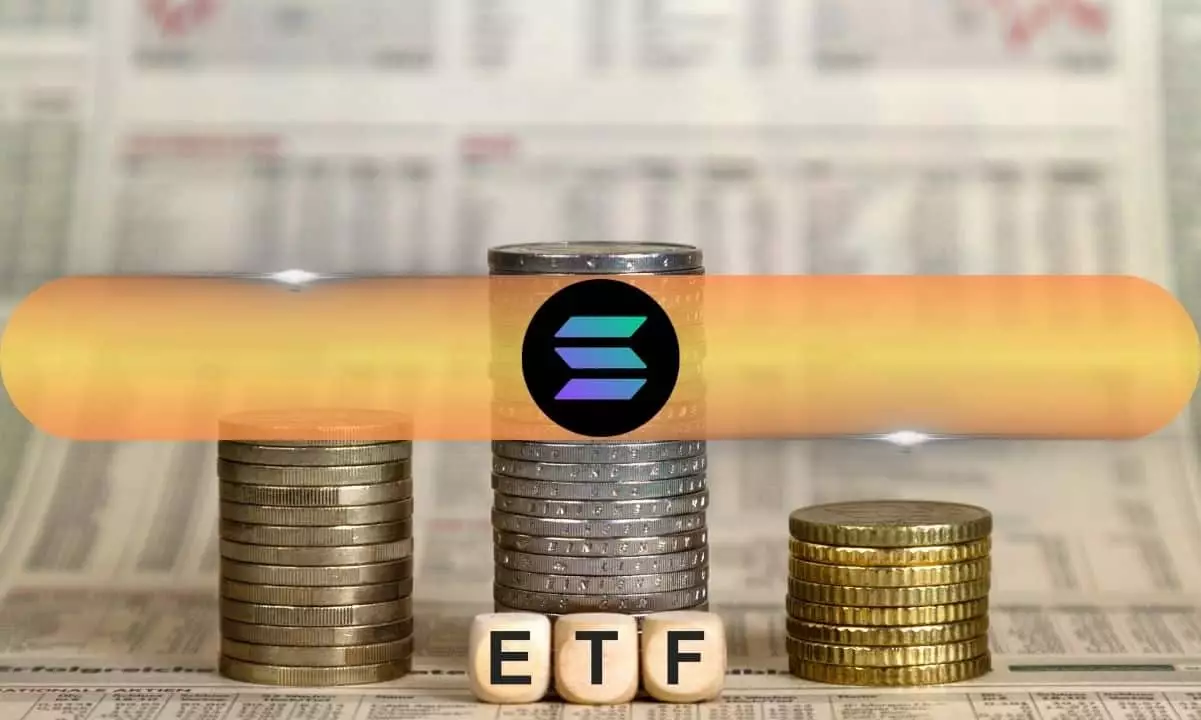The recent movements within the U.S. exchange-traded fund (ETF) arena indicate a renewed interest in Solana, a rapidly growing cryptocurrency ecosystem. The Chicago Board Options Exchange (CBOE) has filed applications aiming to launch four distinct Solana ETFs associated with prominent asset managers in the United States, reigniting competitive fervor among financial entities. These recent applications highlight VanEck, Canary, Bitwise, and 21Shares as contenders hoping to establish themselves in this emerging market.
The journey to secure a Solana ETF has been fraught with difficulties. Historically, several attempts made in the previous year were met with resistance from the Securities and Exchange Commission (SEC), resulting in multiple rejections. Notably, after a brief attempt in July 2024 to list the ETFs, the applications went mysteriously absent from the CBOE website by August, suggesting an implicit rejection from regulatory authorities. While some firms like VanEck continued to push forward, reaffirming their commitment by keeping their S-1 prospectus active, the relentless challenges posed by the SEC confirmed a skeptical environment towards cryptocurrency-related investment products.
In January 2025, with the submission of new applications, the CBOE demonstrates a steadfast resolve to secure approval for these Solana ETFs. However, as financial analysts have pointed out, the chances of receiving a green light from the SEC remain low, especially under the previous leadership of Gary Gensler, known for his cautious stance towards digital assets. The recent transition to Paul Atkins, who projects a more favorable outlook towards cryptocurrencies, has restored some hope among market participants.
Amidst this evolving landscape, the characterization of Solana (SOL) poses additional complexities. The SEC’s ongoing legal skirmishes challenge the classification of SOL, oscillating between security and commodity definitions. This classification dilemma is integral to the approval process for ETFs, as a ruling in favor of SOL being a commodity could set a crucial precedent for future applications.
Strategic Positioning and the Road Ahead
Asset managers pursuing Solana ETFs argue that the decentralized characteristics and operational mechanics, such as the Proof-of-Stake consensus mechanism, support the case for considering SOL as a commodity. However, the surrounding regulatory uncertainty means that these asset managers are maneuvering carefully, often in a defense posture, attempting to ensure compliance while seeking innovation in investment offerings.
In the upcoming weeks, the fate of these ETF applications may rest not only on regulatory changes but also on broader market conditions and investor sentiment regarding Solana itself. Should the SEC alter its stance under new leadership and consider the case for Solana favorably, it may provide a significant lift for asset managers in their pursuit of these ETFs.
While the road to launching Solana ETFs in the U.S. remains precarious and riddled with obstacles, the shifting regulatory landscape could represent a pivotal moment for asset managers as they attempt to penetrate the crypto ETF market. Observers will be keenly watching how the SEC adapts its approach and how Solana navigates its complex identity in the financial ecosystem.
















Leave a Reply